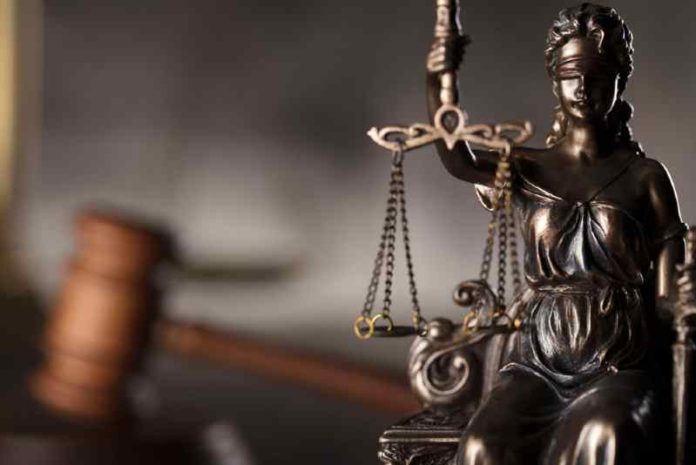A dilemma most business owners face, especially new entrepreneurs, is the issue of protecting their personal and business assets from lawsuits and liability.
Lawsuits occur at the most inopportune times, with personal injuries being the most common. As a business owner, you cannot sit and hope that it will not happen. You need to come up with a strategy to ensure the assets are protected.
Failure to honor financial liabilities could also result in the confiscation of business and personal assets, which is not uncommon among small businesses. Statistics by Small Business Administration (SBA) indicate that only half of businesses survive past the fifth year. It often occurs from excessive debt, poor cash flow, and insufficient capital.
Are your Personal Assets at Risk from Business Lawsuits?
The type of business entity you set up will determine if your assets are at risk of a business lawsuit or not.
In the case of a sole proprietorship and general partnership, there is no separation between you and the business. There is no limit to your responsibility for the debts of your business.
A limited partnership, limited liability company, and corporation provide the business owner with personal asset protection from the business’s lawsuits and liabilities.
If you do not have limited liability from the business, you can be a target to predatory lenders and people trying to gain wealth by manipulating situations to result in a lawsuit. To shield yourself from litigators and creditors, maintain the privacy of asset ownership using land trusts.
A land trust is a legal agreement that transfers ownership of your assets to a trustor. The ownership is only on paper. You maintain the right to make decisions regarding the asset and control the distribution of any benefits resulting from the property under the trust as a beneficiary.
The land trust removes your name from any public records that a litigator can use to trace your assets.
Are Your Business Assets at Risk from Business Lawsuits?
During business lawsuits, any asset belonging to your business that the litigator discovers will be subject to confiscation.
Without proper business protection assets put in place, you could lose your tangible assets such as vehicles, equipment, real estate, machinery, and future assets such as royalties.
How Do Businesses Protect their Assets?
No matter how careful you are, preventing a lawsuit is close to impossible, but you can protect the business’s assets by obtaining the right insurance.
Proper insurance coverage will take care of incidents that occur within your business, as long as it is not a result of negligence and carelessness.
You can add further protection by separating entities adequately. For instance, if you operate your business in a building you own, you can register the business under one entity and the building under another.
How Can You Protect Your Personal Assets from a Business Lawsuit?
In case you cannot protect your personal assets by obtaining limited liability, here are a few other methods you can use.
1) Equity Stripping
This is an asset protection strategy in which you reduce the overall equity in a property. It makes it unattractive to creditors and litigators. Equity stripping involves distributing the asset’s equity to multiple parties.
A major technique is the use of HELOC (Home Equity Line of Credit). It gives a lien against the equity of the asset to the HELOC lender. You do not just protect your assets; you get to obtain funds to handle other financial obligations.
2) Offshore Asset Protection Trust
A land trust prevents litigators from discovering what assets you own. But in case they discover it, a judge can compel the trustee to release the assets.
You can prevent this by using an offshore asset protection trust. A judge cannot directly compel an offshore trustee to release the asset. The creditor would have first to win the lawsuit locally, and then win the legal battle in the offshore trust jurisdiction. It would be too expensive for the creditor, making it unattractive.
3) Keep Personal and Business Finances Separate
Even when you set your business as a separate entity, you could lose the right to limited liability if you misuse the business funds. It is known as piercing the corporate veil.
If the litigator can prove that you used business funds for personal needs or mixed business and personal funds, you lose your protection.
Other Options
Move cash you do not currently need, such as savings, to a retirement account. In the event of bankruptcy, the federal law provides asset protection to ERISA-qualified retirement plans. It also protects up to $1 million in assets to IRAs (Individual Retirement Account).
You can also change your home titling to include your spouse as tenants by the entirety. The creditor, in this case, cannot force your spouse to sell their interest in the house.
Conclusion
Business lawsuits and liabilities are common, and without the proper protective measures, you could lose your assets and those of your business.
Separate yourself from your business by setting it up as an LLC, and ensure that you keep personal and business funds separate. Set up a trust fund for your assets, invest in the right insurance cover, and max out the equity on your property.
David Freudenberg is an American businessman and real estate investor who operates in the sunny state of Florida. Predictive Analytics has saved him a ton of time in running CMAs and analyzing neighborhoods to invest in. You may have recognized his company from the popular slogan, “We Buy Houses Florida.”
Law stock photo by Zolnierek/Shutterstock







